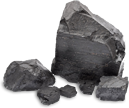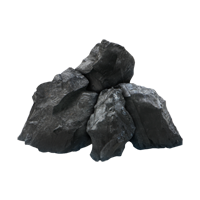The Men Formed the Union, the Women Gave Their Support

The following two accounts were submitted to Miners’ Memorial by grandson William R. (Bill) Godina, and daughter Flora Tomasi Scherff, respectively.
Blasius (Blas) Godina was born on January 31, 1864 in Yugoslavia. He married Julia Potocnik who was born in Austria.
Four children were born to my grandparents in Austria. In the mid-1890s, they moved to Germany looking for work. Another child was born in Germany.
Blas and his son Frank (my dad) came to America in 1902 aboard the German ship Frederick der Grosse (Frederick the Great). They arrived in New York on November 18, 1902, four days before my dad’s fourteenth birthday. They came to Mulberry, Kansas where Blas went to work in a coal mine.
Frank went to school for six months. He had to be fourteen and a half years old before he was allowed to work in the mine! At that age, Dad became a miner, too. No family members had been miners in Europe.
Blas and Frank had saved enough money by 1903 to bring Grandma and the other four children from Germany. Blas and Julia had two more children born in the United States.
Due to poor safety laws and lack of care by mine owners prior to 1920, some men, including my grandfather and dad, organized the miners in southeast Kansas to become part of the United Mine Workers of America. The mining companies strongly resisted and hired “thugs” and “strong arm” protectors. There was violence between these men and the miners. There were people killed and injured on both sides.
Eventually the Union won the right to organize, and safer mining practices were beginning to take place. The pay to miners gradually improved, too.
In 1924, Blas and Julia, along with their youngest children moved to Montana. Blas died in 1928 of asthma, according to the doctor’s diagnosis, but it more likely was black lung, or miner’s consumption, as it was sometimes called.
Pietro (Pete) Tomasi was born on September 25, 1881 in Baselga de Pine, Trento, Italy. He came to the United States when he was about seventeen years old. He worked in the coal mines in Central City and Gunnison, Colorado. On October 31, 1904 he became a United States citizen while in Colorado.
When he moved to Novinger, Missouri, he met Marie Magdelana Magnetti (born December 10, 1893). They were married on Nov. 11, 1910.
Soon after they were married, they moved to the Mulberry, Kansas area. My dad went to work in the coal mines there. My parents had two daughters, Norma Peterson and Flora Scherff.
Mother was one of the marchers in the Amazon Army. I was young and during the days of marching I was quite frightened. [In December 1921 several thousand women marched to protest the use of scabs during the strike of that year and a law which took away the right to strike. For more information refer to the October 3, 2004 edition of Coal Mining Days in The Morning Sun.]
My father was one of those men who always managed to bring home some pie, cookies, or cake from his lunch bucket for his two small daughters. He spent the last years in the mining industry as a blacksmith.
I recall one Thanksgiving he had to work to repair a breakdown. My mother prepared a traditional Thanksgiving dinner and took it to the mine where we all had dinner in our car.
My father worked for the Sheridan Coal Company in Mines No. 3 and 7, as well as for Western Coal Company in Mine No. 20.
